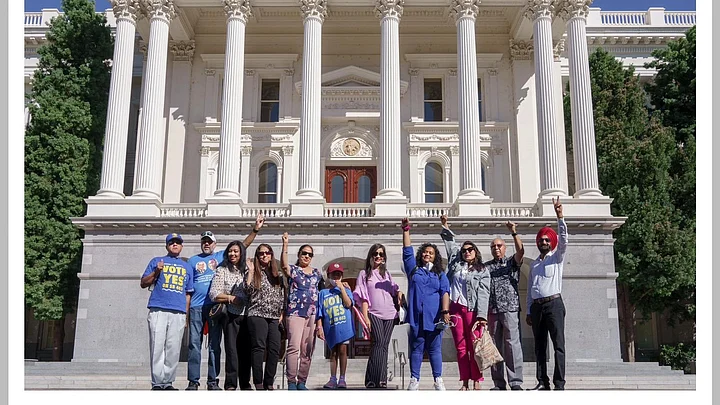The California State Assembly on Monday, 28 August, passed the SB 403 bill that outlaws caste-based discrimination in the state.
This comes after the state senate passed the legislation earlier this year.
If cleared by the Governor, California will become the first state in the United States to add caste as a protected category in its anti-discrimination laws.
Earlier this year, Seattle became the first-ever city in the US to pass a similar legislation.
The legislation will be a major victory for members of oppressed castes residing in the US as California is the largest state in the country in terms of population and size of the economy.
The bill SB 403 was authored by California State Senator Aisha Wahab, and is being promoted by a number of Ambedkarite and anti-caste groups.
"We want to ensure organisations and companies do not entrench caste discrimination in their practices or policies, and in order to do that we need to make it plainly clear that discrimination based on caste is against the law," Wahab had said in March 2023.
California Not New to Caste Discussions
California currently bans discrimination on the basis of national origin, race, religion, sex, sexual orientation, etc.
In 2020, the California Civil Rights Department had brought a case against the networking gear and business software company Cisco in which it was alleged that two upper caste employees at the company subjected a Dalit employee, who was identified by the pseudonym John Doe, to caste discrimination.
This case spurred many Ambedkarite groups into action and they gathered testimonies of many other Dalits who had faced similar harassment and discrimination on the basis of caste. A number of technology companies had conducted caste sensitisation workshops for their employees in the wake of this incident.
Apple, which is headquartered in Cupertino – a city in California – updated its employee conduct policy in August 2020 to explicitly prohibit caste discrimination.
In August 2021, California Democratic Party, an affiliate of the Democratic Party, too updated its code of conduct to ban caste discrimination.
A few months later, the California State University system, which has 23 campuses across the state, followed suit.
California, home to many technology companies, has a sizeable South Asian population. As in the previous cases, the Hindu right groups such as the Hindu American Foundation and the Coalition of Hindus of North America, are expected to put up a stiff opposition to the bill.
In 2016, they had strongly objected to the mention of caste system and other critical points related to Hinduism in the California school textbooks meant for the 6th and 7th grade students.
(At The Quint, we question everything. Play an active role in shaping our journalism by becoming a member today.)
